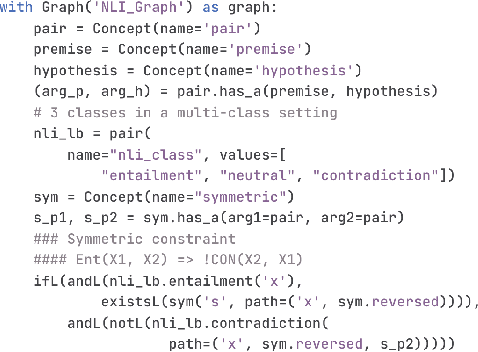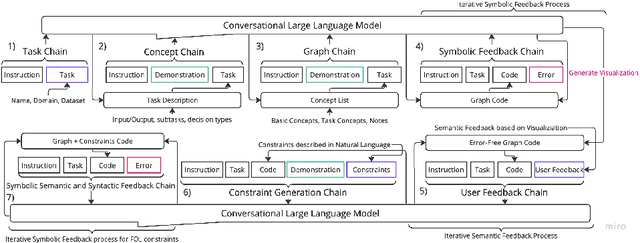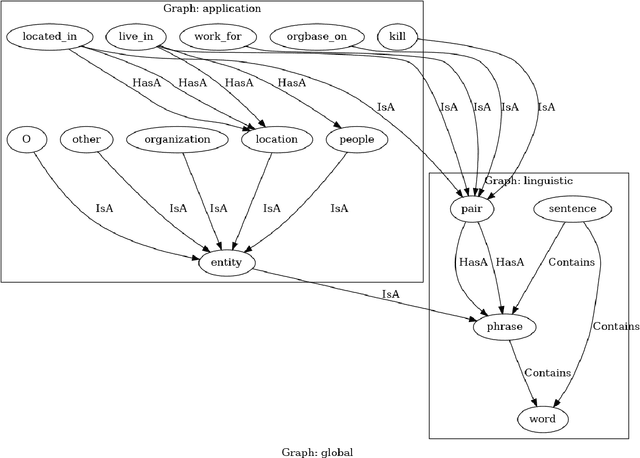Andrzej Uszok
Prompt2DeModel: Declarative Neuro-Symbolic Modeling with Natural Language
Jul 30, 2024



Abstract:This paper presents a conversational pipeline for crafting domain knowledge for complex neuro-symbolic models through natural language prompts. It leverages large language models to generate declarative programs in the DomiKnowS framework. The programs in this framework express concepts and their relationships as a graph in addition to logical constraints between them. The graph, later, can be connected to trainable neural models according to those specifications. Our proposed pipeline utilizes techniques like dynamic in-context demonstration retrieval, model refinement based on feedback from a symbolic parser, visualization, and user interaction to generate the tasks' structure and formal knowledge representation. This approach empowers domain experts, even those not well-versed in ML/AI, to formally declare their knowledge to be incorporated in customized neural models in the DomiKnowS framework.
GLUECons: A Generic Benchmark for Learning Under Constraints
Feb 16, 2023Abstract:Recent research has shown that integrating domain knowledge into deep learning architectures is effective -- it helps reduce the amount of required data, improves the accuracy of the models' decisions, and improves the interpretability of models. However, the research community is missing a convened benchmark for systematically evaluating knowledge integration methods. In this work, we create a benchmark that is a collection of nine tasks in the domains of natural language processing and computer vision. In all cases, we model external knowledge as constraints, specify the sources of the constraints for each task, and implement various models that use these constraints. We report the results of these models using a new set of extended evaluation criteria in addition to the task performances for a more in-depth analysis. This effort provides a framework for a more comprehensive and systematic comparison of constraint integration techniques and for identifying related research challenges. It will facilitate further research for alleviating some problems of state-of-the-art neural models.
DomiKnowS: A Library for Integration of Symbolic Domain Knowledge in Deep Learning
Aug 27, 2021



Abstract:We demonstrate a library for the integration of domain knowledge in deep learning architectures. Using this library, the structure of the data is expressed symbolically via graph declarations and the logical constraints over outputs or latent variables can be seamlessly added to the deep models. The domain knowledge can be defined explicitly, which improves the models' explainability in addition to the performance and generalizability in the low-data regime. Several approaches for such an integration of symbolic and sub-symbolic models have been introduced; however, there is no library to facilitate the programming for such an integration in a generic way while various underlying algorithms can be used. Our library aims to simplify programming for such an integration in both training and inference phases while separating the knowledge representation from learning algorithms. We showcase various NLP benchmark tasks and beyond. The framework is publicly available at Github(https://github.com/HLR/DomiKnowS).
 Add to Chrome
Add to Chrome Add to Firefox
Add to Firefox Add to Edge
Add to Edge